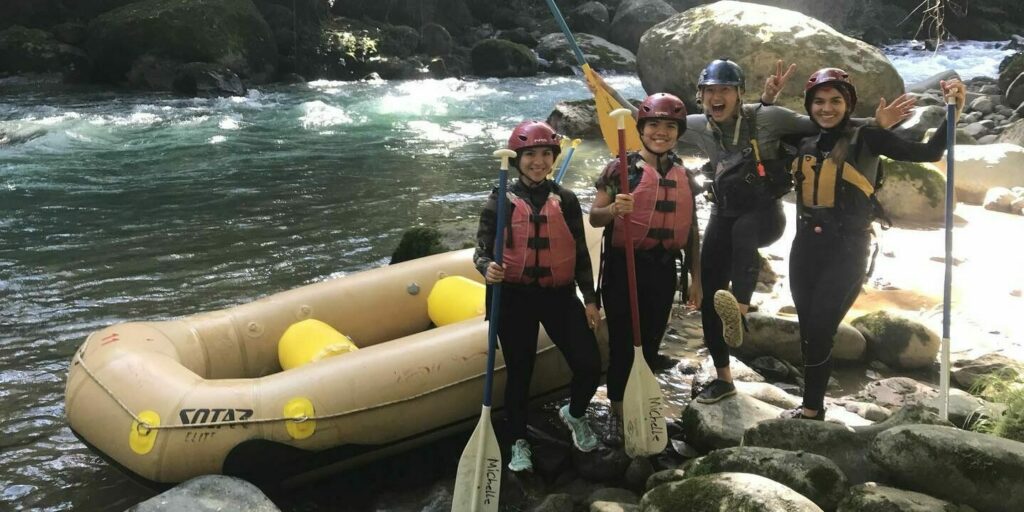If you’ve ever been kayaking or whitewater rafting, you know that exciting yet suspenseful sensation of silence just before a rapid. There’s this feeling of entering the unknown and accepting the outcome, whether it be peaceful or turbulent. In the quiet moments before the final strokes, it becomes clear that there are certain elements outside our control: the water levels, the weather, or any unexpected obstacles for example.
Experienced kayakers understand that by preparing for potential challenges, such as bringing extra clothing for colder temperatures or maintaining their swiftwater rescue techniques, they can minimize unwanted outcomes. Knowing what you can and can’t control allows an individual to focus their energy toward the things they can while reducing stress and frustration about things that are simply out of their hands. This concept applies on the river and in our day-to-day life.
I first learned this as a volunteer firefighter through an important saying that I was introduced to at the time. The Serenity Prayer perfectly captures this idea: “Give me the serenity to accept the things I cannot change, the courage to change the things I can, and the wisdom to know the difference.” In kayaker’s terms: “Sometimes you surf, and sometimes you get surfed.”
Similarly, when it comes to communicating across cultures or with different individuals, we must be aware of the varying perspectives, values, and attitudes people bring to the table that we cannot control. By anticipating potential challenges and using effective communication strategies, we can successfully address these issues. While we can sometimes change the opinions of others through discussion and reasoning, at times we have to ultimately accept that we are unable to agree, and that’s okay too.
Looking at the big picture of global citizenship, we ultimately must acknowledge that some issues are beyond our control. Trying to change all of the problems in the world seems simply impossible. However, there is an abundance of opportunities for us to make a positive impact and improve major world issues on a daily basis and at a local level.
This is something we try to inspire at Cross Cultural Connect through our connection programs with students around the world. We aspire to help students become well-rounded, mindful citizens that encourage others to create change. Through my humble writings and shared experiences, I hope I can also motivate others. The question is, what will you do to make a difference?
Subscribe to CCC for a free multicultural education lesson plan!
